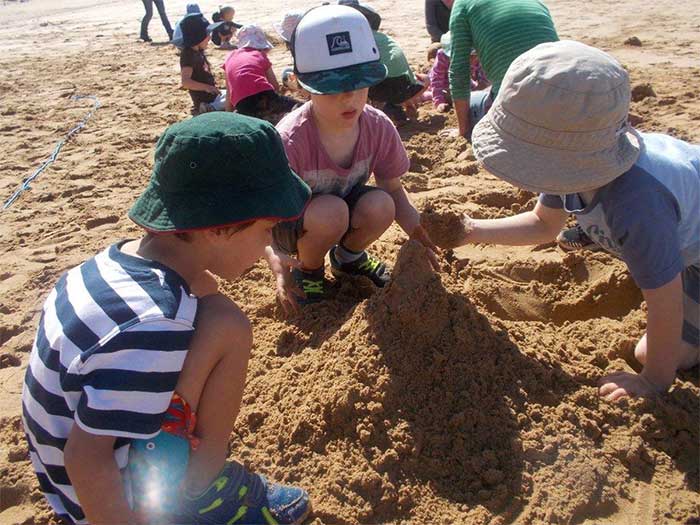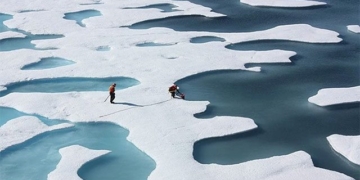Australian Scientists First Document STEM Learning Benefits for Preschoolers in Blue Ocean, White Sand Environments
A new discovery has just been published by a team of experts from Deakin University (Australia) in the Journal of Outdoor and Environmental Education.
Dr. Chris Speldewinde from the Deakin University Education Impact Research Center stated that the benefits of teaching and learning STEM in forests within preschool programs have been previously recognized.

Preschoolers at the beach enhance their math and science learning – (Image: GREAT OCEAN ROAD COAST).
Previous research by Chris Speldewinde has also shown that preschoolers participating in forest activities achieve better STEM learning outcomes than those who only learn indoors. However, the learning potential from marine environments has not yet been fully understood, prompting them to conduct this study.
According to Dr. Speldewinde, Australia is an ideal place to explore this new area due to its warm climate. Swimming and going to the beach in summer are integral parts of Australian culture.
The research examined preschool classes at the beach, where children aged 4 to 5 were encouraged to explore and play creatively with natural materials in coastal areas.
In these classes, teachers did not bring balls or buckets; instead, children were encouraged to interact with seaweed, shells, sand, rocks, marine animals, and seawater.
Children experienced seasonal changes, learned about nature, the environment, marine food sources, and how tides affect erosion.
The research team found significant progress in students’ math and science outcomes in the STEM field after incorporating beach activities into the preschool curriculum.
Specifically, exploring coastal rock pools is a great way to start early conversations about physics and biology. Teachers also helped children engage with basic engineering principles by using natural materials to build sandcastles. They learned about gravity, evaporation, and how to classify shells.

Japanese students during a beach clean-up – (Image: OKINAWA INTERNATIONAL SCHOOL).
“Our research demonstrates that coastal environments are rich learning contexts for young children. I encourage early childhood educators and parents to try turning their next beach trip into a learning experience,” said Dr. Speldewinde.
“Going to the beach is a cost-effective way for families to enjoy quality time together. We also found that green spaces can be peaceful and enriching environments for children facing behavioral, psychological, and emotional challenges, improving their conditions,” he further explained.



















































